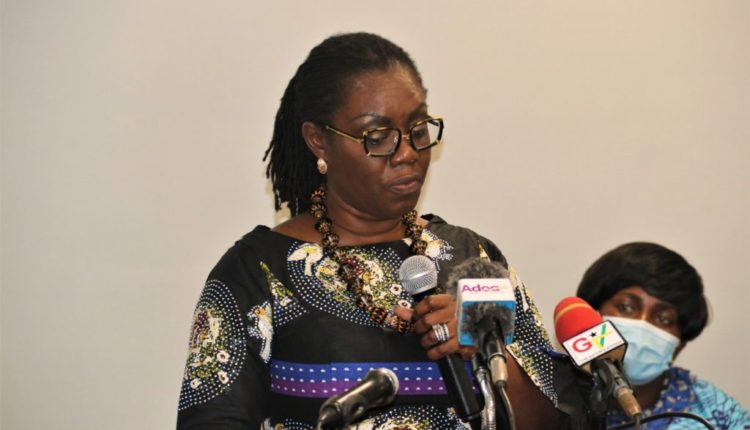Ghana’s Communication and Digitalisation Minister, Mrs. Ursula Owusu-Ekuful has said, the government is committed to invest about 2.6 million dollars into the establishment of more innovation centres to train about 3,000 young people by 2024.
According to her, urgent action is needed to drive connectivity to desired levels in the shortest time with a clear policy of not leaving anyone behind, calling on the youth to be the catalysts of this urgent call.
“The Government of Ghana has committed 2.6 million United States Dollars to add two innovation centres and train 3,000 people by 2024” she made this known when speaking at the ongoing 8th edition of the International Telecommunications Union (ITU) World Telecommunications Development Conference (WTDC), in Kigali, Rwanda under the theme “Connecting the unconnected to achieve sustainable development.”
Under the auspices of ITU, the United Nations specialized agency for information and communication technologies, WTDC brings together more than 2,000 members of the international community, including Heads of State, government ministers, national delegations from 153 countries, prominent leaders from the digital sector, high-level representatives of regional bodies including the African Union and European Union, and top officials from non-governmental bodies.
Between 6 and 16 June, they will strive to draw up a bold new roadmap for harnessing digital technologies to drive socio-economic development and re-energize progress towards the Sustainable Development Goals (SDGs) set by the UN for 2030.
Ramping up global connectivity has gained greater urgency amid the COVID-19 pandemic of the past three years. While Internet use surged in 2020, reaching 4.9 billion users worldwide, some 2.9 billion people remain unconnected and in growing danger of being left behind.
Giving further credence on government’s already measures to safeguard the digital system, the Minister said initiatives such as enabling inclusive digital prosperity, the collective efforts to tackle inequalities seen in the digital transformation as well as equipping vulnerable citizens with digital literacy skills has been spearheaded over the period.
According to her, measures such as the universal service funds to boost broadband services in rural areas and narrow the digital divide, the Rural Telephony and Digital Inclusion Project, building necessary digital infrastructure for rural connectivity, among many others have been initiated to bridge the gap and also contribute the minority in both digital connectivity and use.
“As you know, Ghana as a Partner to Connect Focus Area leader is the first Member State to pledge both policy and financial commitments. We have committed €155 million to supplement universal service funds to boost broadband services in rural areas and narrow the digital divide. As part of the project, 2016 cell sites are being built across the country to connect about 3million Ghanaians by 2023. A similar amount will be committed for the second phase once the current phase of the Rural Telephony and Digital Inclusion Project is completed.”
“In addition to building this shared infrastructure for rural connectivity, Ghana has also pledged an open spectrum policy to facilitate the usage of any technology to connect more than 6,000 villages across the country, and 3 million Ghanaians will be connected by 2023. We have mandated and are implementing a national roaming policy for any user to access broadband and emergency call services in our rural, unserved and underserved communities regardless of their service provider.
“Furthermore, Ghana commits to enhancing digital skills to empower its citizens to develop and utilise digital solutions to address social and economic challenges” she added.


Comments are closed.